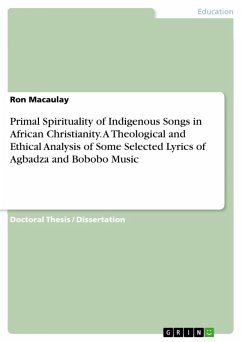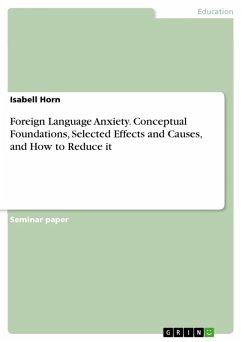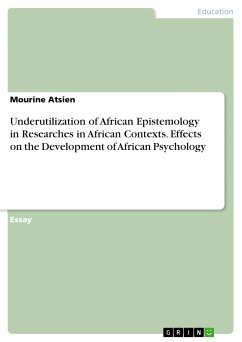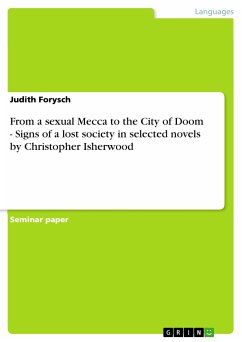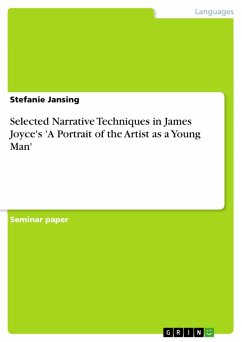Doctoral Thesis / Dissertation from the year 2024 in the subject Didactics - Theology, Religion Pedagogy, grade: 3.95 (A), University of Ghana, Legon (Selinus University of Sciences and Literature), course: Theology and Ethics, language: English, abstract: Africans have the capability to express their primal knowledge to enrich their Christian faith. Their primal spiritual knowledge is expressed through oral means such as singing accompanied by drumming and dancing. The expression of their primal spirituality helps them to present their spirit, soul and body wholly to God. This primal condition of being spiritual is the personal quality prior to any other religious beliefs, such as Christianity. Therefore, African Christianity is how to live the Christian faith and worship God within the African way of life, and not necessarily syncretising different systems of religious beliefs, but the expression of the soundness of Africanness. Hence, the thesis has been grounded in The Concept of Africanness in African Christianity, which is how Christianity would communicate with African cultural heritage. A distinct way of expressing Africanness can be noticed when Agbadza and B¿b¿b¿ music and the lyrics that are akin to Scripture are engaged in some African churches to worship God. This primal expression is functionally identical in the Apostles Revelation Society, and some branches of the Global Evangelical Church (hereinafter called the ARS and GEC, respectively). Nevertheless, while Agbadza is culturally considered as war music among the Anlo-E¿e, B¿b¿b¿ music among the E¿edome is also seen as immoral and frown upon. Notwithstanding these mixed feelings towards Agbadza and B¿b¿b¿ cultural music, majority of Christians get exceedingly excited about the engagements between these cultural music and Christian faith in their churches. The main objectives of the study are to find out why they get excited when these cultural music are being engaged in the churches, and the war and immoral nature of these music. In addition, the theological and ethical thoughts on some selected lyrics are considered. Finally, what would the ARS and GEC do differently to lay bare the impact these cultural music should have on their communities, which guarantee their future and sustainability in the churches. In order to achieve the objectives of the study, theological, ethical, and phenomenological methods are blended as qualitative technique has been adopted in data collection and analysis. The reason why the worshippers get excited about these cultural music had been explored, and the theological and ethical thoughts on the practice were examined.
Dieser Download kann aus rechtlichen Gründen nur mit Rechnungsadresse in A, B, BG, CY, CZ, D, DK, EW, E, FIN, F, GR, HR, H, IRL, I, LT, L, LR, M, NL, PL, P, R, S, SLO, SK ausgeliefert werden.

